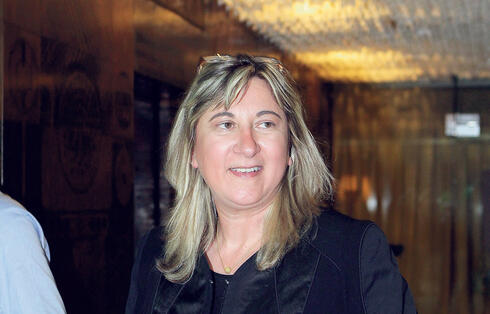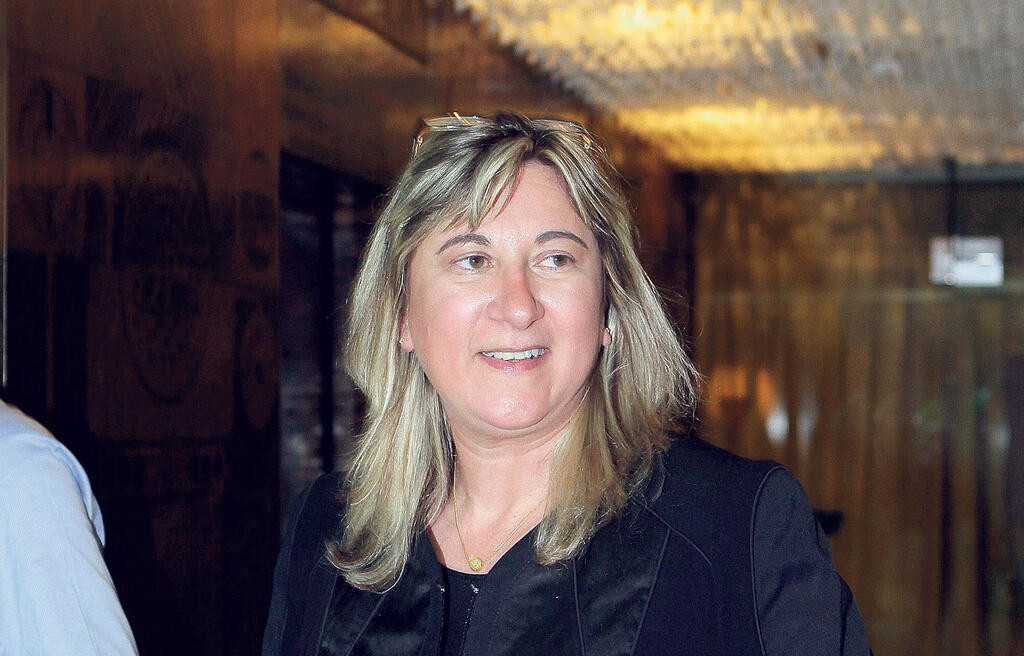
Apax raises $600 million for new fund after making 35x on Global-e investment
Apax's $21 million investment in Global-e, realized at $729 million, helped its first fund to record an annual yield of 39%
Will Apax Israel's second fund be able to repeat the success of the Global-e investment, or is the dream exit in the e-commerce company a one-time success? Calcalist has learned that Apax Israel recently completed a $600 million round for its second fund, AMI 2 (Apax Midmarket Israel). Among its Israeli investors are the Electric Company employees' pension fund, the teachers' and kindergarten teachers' pension funds, and the controlling owner of the Blue Square group Moti Ben-Moshe. The foreign investors include General Electric, Merrill Lynch and Partners Group.
Apax Israel began fundraising for its second fund at the end of 2021, six years after it completed the funding round for its first fund at $500 million. Ben-Moshe (at $50 million), General Electric and Amitim pension fund also invested in the first fund, as well as Bank Leumi and Bank HaPoalim. The partners in the fund, which is managed by Zehavit Cohen, also invested in the first fund.
Calcalist further learned that even before the funding round was completed, the second fund had already made two investments totaling $60 million. That is, 10% of the sum raised in this round. The first investment, revealed by Calcalist, was the purchase of 70% of Zoo-Eretz, an importer of food and other products for pets, for $36 million. The company was purchased from its founder Lior Shteindam, reflecting a value of $55 million. Shteindam continues to manage Zoo-Eretz, which was established more than 20 years ago, and operates 28 branches today. The second investment, revealed for the first time, is in Chavat Da'at Medical Center, which provides medical treatment and radiology services for animals. The fund acquired full ownership of the center in exchange for $24 million. The center, located in Kfar Saba, describes itself as the largest of its kind in Israel.
Apax's first fund has not yet invested all the money it raised. It has made 10 investments totaling S450 million, so far yielding a return of 3.5X on the investment, on paper. In practice, $1.1 billion has already been returned to investors - an amount that reflects a 2.2X return on the investment and a yield of about 39% per year.
The fund reached these returns primarily thanks to its investment in the e-commerce company Global-e, which provides technological solutions to remove barriers in international e-commerce. The fund invested $21 million in the company back in 2018, in one of its early rounds. In May 2021, at the peak of the IPO wave led by technology companies, Global-e was listed on Nasdaq at a value of $3.6 billion. In September, shortly after the IPO, the company reached a record value of $10 billion. The company's stock has cooled down since, and is currently trading at a value of $6.45 billion.
Apax Israel's first fund, much like other investors, took advantage of the increases to gradually sell all of its holdings in the company for $729 million. This is a 35X return on investment and an amount that is significantly greater than the total of the first fund's fundraising.
The fund made other investments that yielded adequate returns, but none of them came close to Global-e's numbers. It should be noted, however, that the fund does not include one of Apax's most prominent investments in Israel: Psagot Investment House, which it sold in 2021 to Altshuler Shaham Pension Funds, the public subsidiary of Altshuler Shaham investment house, for NIS 910 million. This was a deal that resulted in a considerable loss of 25-30% on the equity invested (373 million euros) when it purchased Psagot for NIS 2.5 billion, plus debt. This investment was made directly by Apax Global.
Among the first fund's successful investments are also tourist services company Go Global Travel, which operates out of Bnei Brak, and was sold last May to Korean company Yanolja, which is controlled by the giant Japanese investment fund SoftBank. In 2017, Apax Israel's first fund invested $85 million for 87% of the shares. The total return achieved by the fund is S235 million. Yossi Cohen, former head of the Mossad and brother-in-law of Zehavit Cohen, is SoftBank's representative in Israel. SoftBank owns the Korean company through a fund that has no connection to Israel or to Yossi Cohen. A more modest exit was made through the price comparison engine Zap. The first fund purchased the company from the company's institutional creditors in 2015 for $35 million, and in April 2021 the company was sold to Formula Systems Ltd. for $85 million.
The fund's Achilles heel is of course its investment in the Schultz catering company, where it lost the entire investment. Back in April 2015, in its first investment, AMI 1 purchased Schultz for $28.3 million. At the end of 2021, Schultz submitted a request to delay proceedings to the court, following debts of NIS 58 million to creditors and another NIS 40 million to its owners. In the end, the company was sold by the court trustee to Oren Shultz, son of the founder, for NIS 3.2 million.
The rest of the first fund's holdings have not yet been realized and their value is determined according to a valuation by Apax. Similar to other private investment funds, the value is determined according to a methodology established by the fund itself. However, fund investors often do not agree with the valuations, which they tend to see as overly optimistic. With the existing holdings of the first fund, we can name Comax, which produces advanced ERP solutions for businesses and organizations. The fund acquired 80% of Comax in two stages for a total investment of $36 million. In the letter it sent to investors, Apax Israel presents the holding value as $64 million. Apax also owns 7% of the shares of Guesty, which provides management services for accommodation units. The fund invested $25 million in the company and claims its holdings are now valued at $42 million.
In March 2022, AMI 1 purchased 45% of Infinity Labs shares from the publicly held corporation Matrix at a value of NIS 375 million. The letter to investors reveals that the fund increased its holdings to 55%, so its investment stands at $60 million. The holding is listed at a value of $66 million. Since 2017, Apax also owns gas station operator Ten10, which it purchased from Eliezer Fishman when his financial empire went into a spiral that led to bankruptcy. The shares were purchased for $44 million although the fund presents them at a value of $80 million. To date, the fund's various attempts to sell the fuel company have not been fruitful, due to, among other things, a swindle that occurred within the company. Another holding is a 51% share of the prefabricated construction products company Ramet from Or Yehuda. The holding was acquired in 2018 for $34 million and is recorded in the books at $42 million.
The first fund also owns two listed companies. In 2017, it purchased 55% of the shares of discount retailer Max Stock in exchange for NIS 170 million, according to a company value of NIS 310 million. In September 2020, the company was issued on the Tel Stock Exchange at a value of NIS 1.7 billion, and today it is traded at a value of NIS 1 billion. The fund's share in Max Stock currently stands at 28%. It invested $51 million in total and presents its holdings at a value of $239 million, far above the market value of NIS 280 million. The difference stems from the dividends that have been distributed over the years.
Moreover, the first fund owns 14.5% of the shares of the non-bank credit provider S.R. Accord controlled by Adi Zim. In October 2019, the fund purchased 10% for NIS 55 million, and two years later it purchased an additional 4.5% for NIS 33 million. The entire company is currently traded at a value of $430 million, so the shares, which were purchased for NIS 88 million, are currently worth NIS 64 million. The fund's reports state that the investment was $28 million and that the shares' value is $22 million.














